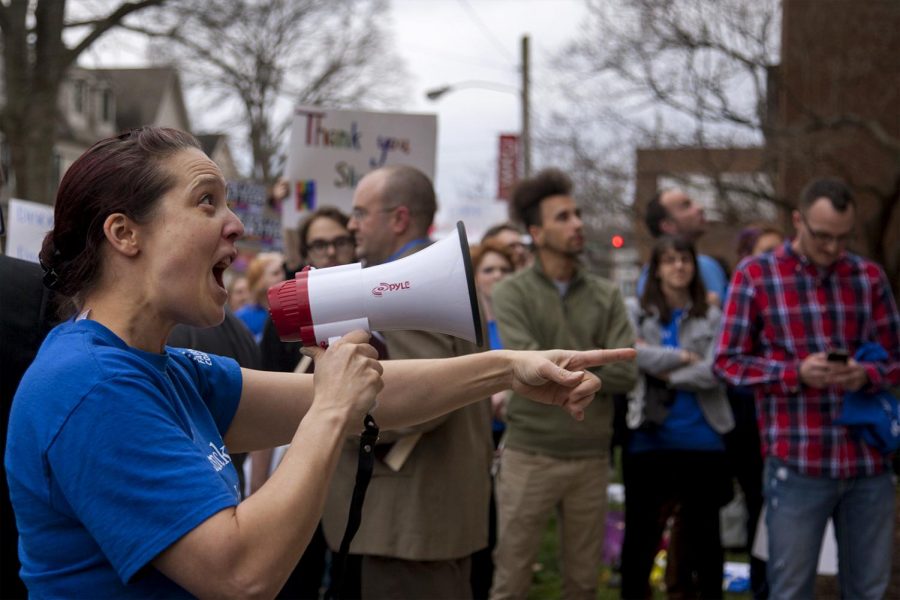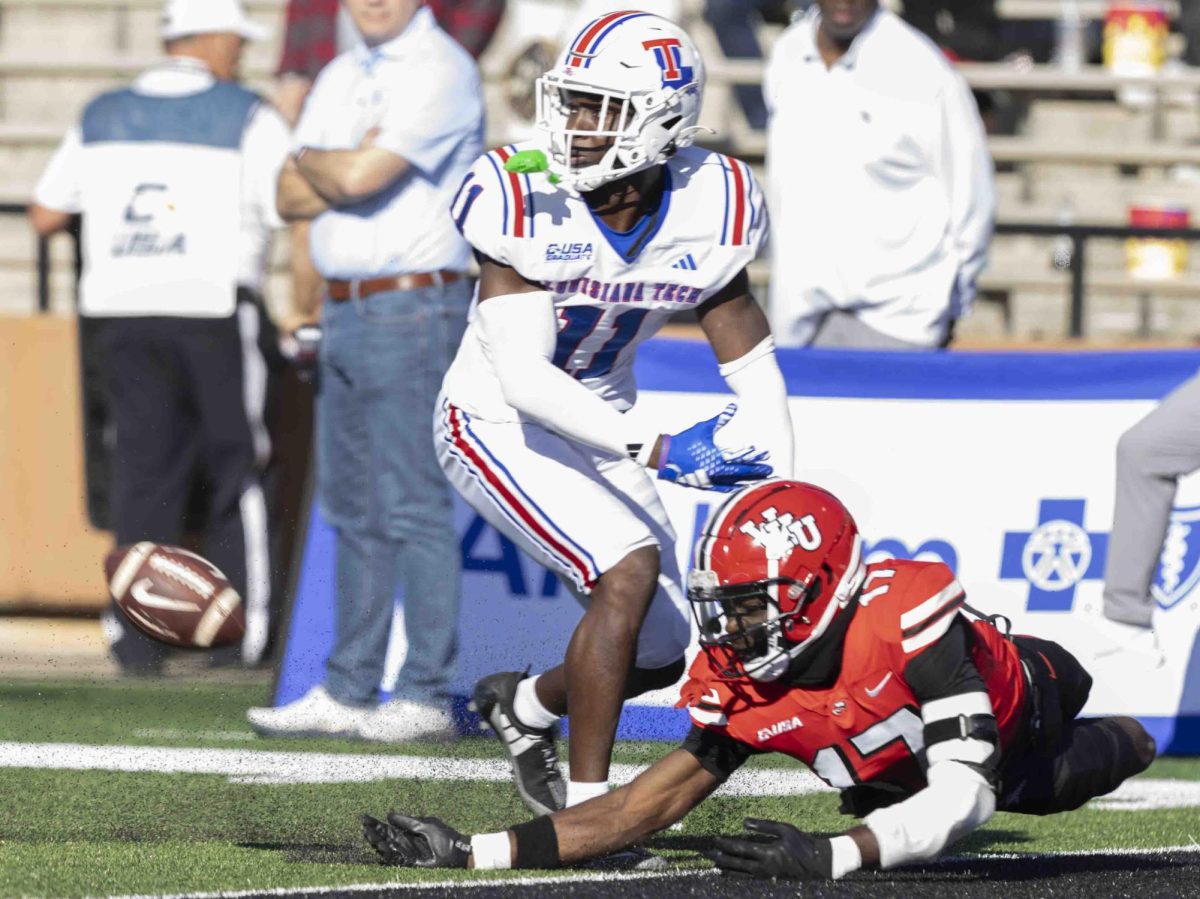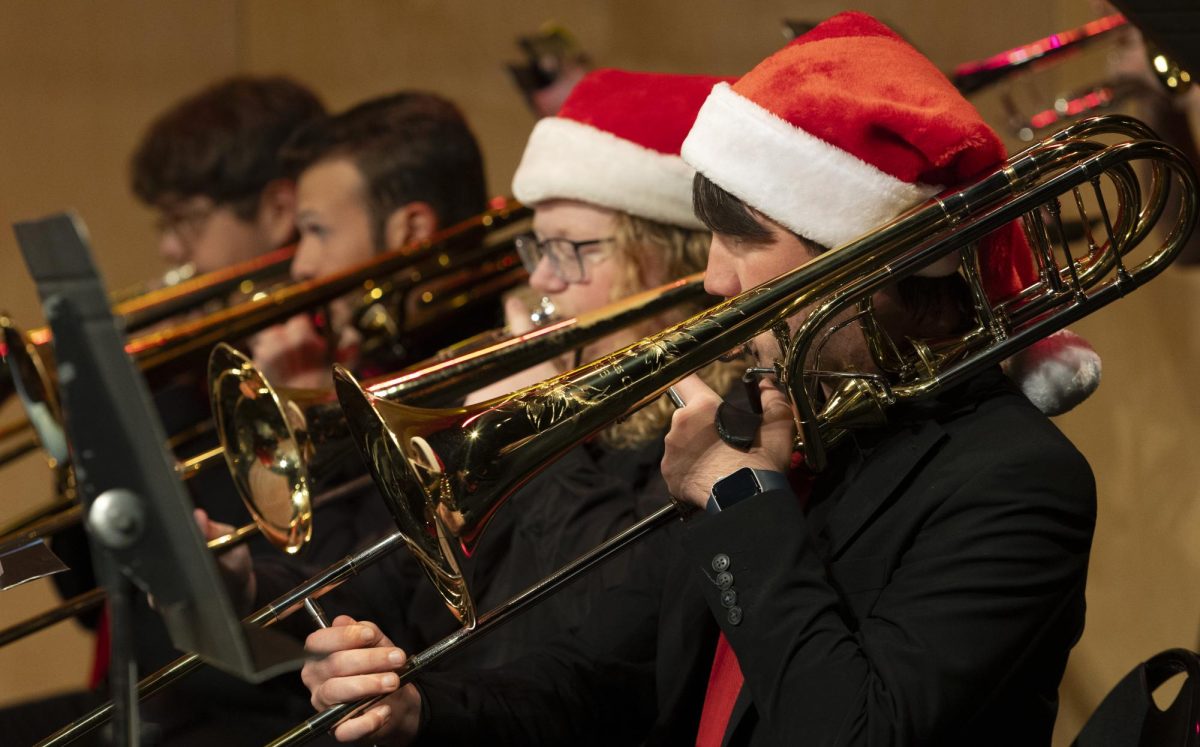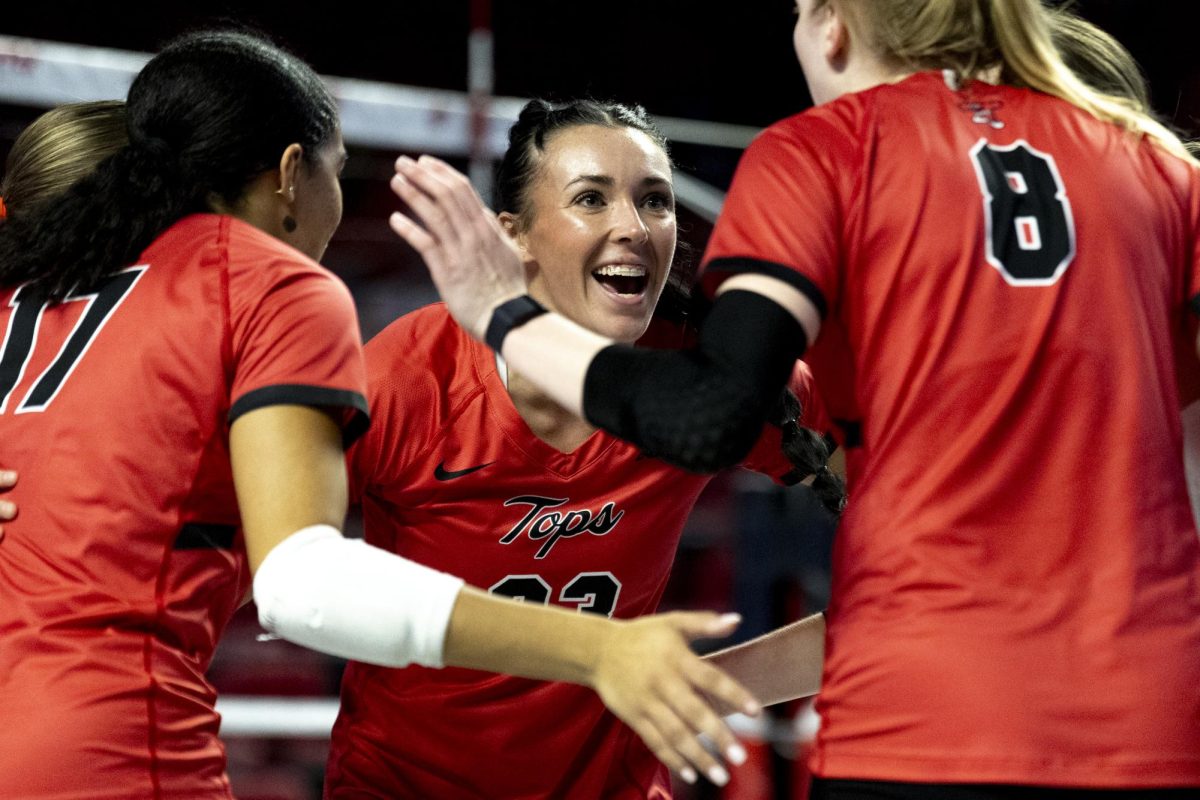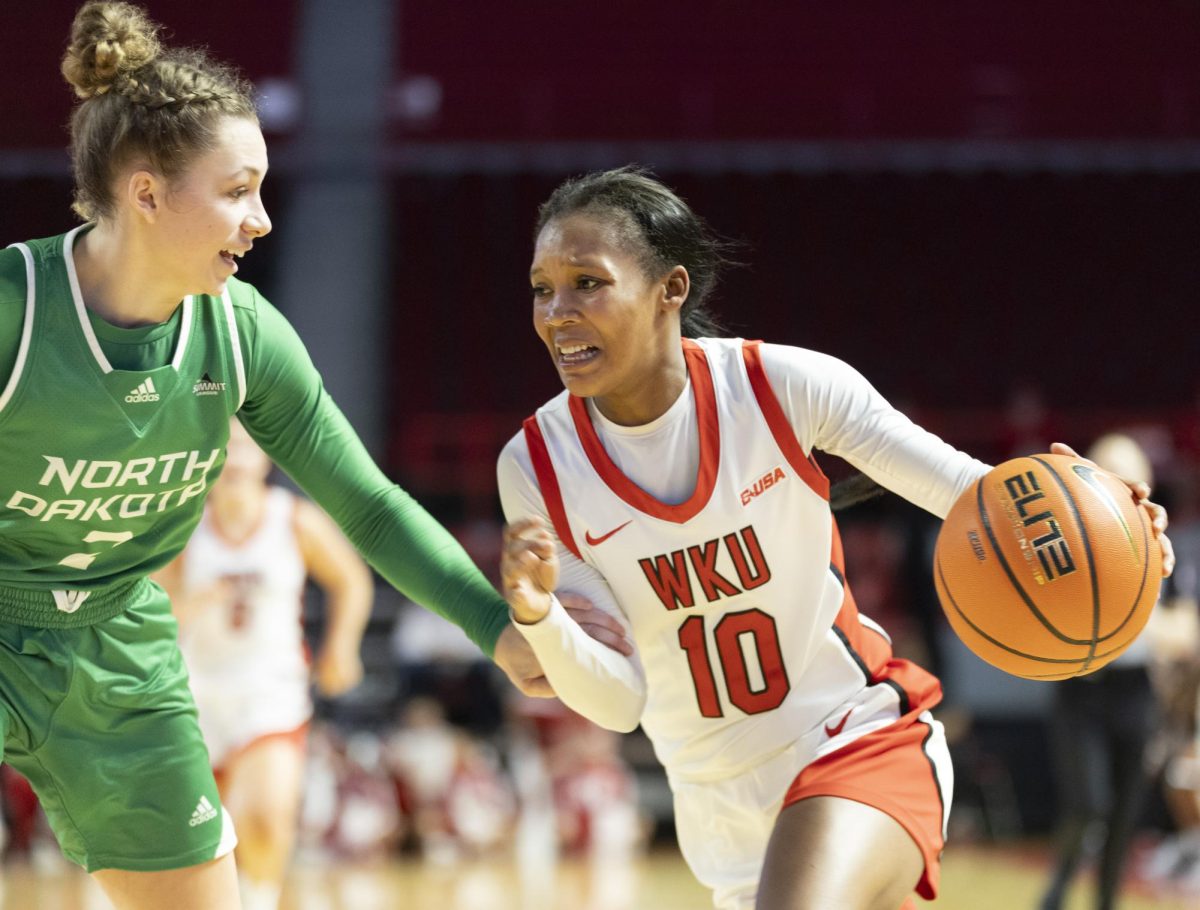City Commission tables fairness ordinance
February 22, 2017
Hundreds of Bowling Green residents gathered in City Hall on Tuesday for the bimonthly City Commission meeting to hear the fairness ordinance read for the first time and tabled without discussion.
Crowds assembled at Bowling Green City Hall before the meeting began and had filled the commission chamber to maximum capacity by around 4 p.m., 30 minutes before the meeting was scheduled to begin. The overflow of people stood and watched the meeting on a TV in the lobby, and more stood outside holding signs and chanting.
The proposed fairness ordinance would add sexual orientation and gender identity as protected categories to existing civil rights laws. Bowling Green is the largest city in Kentucky without a fairness ordinance; as a result, anyone in Bowling Green can be legally discriminated against in housing, employment and other public accommodations if this discrimination is based on sexual orientation or gender identity.
After it was announced the ordinance was tabled until the next meeting on March 7, crowds outside and in the commission chamber and lobby started chanting “shame, shame, shame” at the mayor and commissioners as they left City Hall.
Brian “Slim” Nash, the only commissioner in favor of passing the ordinance, said he was disappointed in the outcome of the meeting but hopes to keep the discussion going.
“Oftentimes, progress is done in small steps, and so I think we’ve made at least a step in the right direction tonight,” Nash said.
Nash said in his eight years of previous experience on the city commission, he had never seen such a large group of people turn out for a meeting. There were about 200 people in attendance according to Patti Minter, WKU associate professor of history.
Following the meeting, supporters of the fairness ordinance gathered outside to hear Nash and others give the speeches they had prepared for the meeting, but did not get the chance to read.
Minter started by thanking Nash, addressing the crowd and calling them to action.
“I am tired of watching beautiful young people leave the city and leave Kentucky for places where the laws protect them from discrimination because we don’t,” Minter said. “That’s not okay.”
Minter said she began the fight for equal rights in 1999 and has been an advocate ever since. She also promised to continue until the day it is passed.
“It’s time to add sexual orientation and gender identity to our existing civil rights ordinance, because until all of us have full and equal rights then none of us do,” Minter said.
Bowling Green resident Drue Eberhardt shared personal stories of discrimination he has faced while working in Bowling Green.
“No individual, regardless of gender, religion, race or sexual orientation should ever be subjected to a hostile work environment like I was,” Eberhardt said. “And God forbid that you are, you should have legal protection.”
Nash plans on bringing the issue to the next city meeting on March 7, followed by a working meeting, which is a “non-binding, non-voting meeting” where the public will be able to give input.
Nash said he believes the other commissioners are not supportive of the fairness ordinance possibly because of political strategies to stay neutral or because they believe it is a state or federal issue.
“They haven’t denied that discrimination is happening; all they’ve said is that they don’t want to be involved in solving the problem,” Nash said.
Despite the lack of progress with the fairness ordinance during the meeting advocates like Chris Hartman, the director of the fairness campaign, still seem optimistic about the future of the ordinance.
“We’ll keep the pressure on; we’ll keep advocating; we’ll keep bringing people forward who have stories to share with the city commission about why a fairness ordinance is needed here,” Hartman said.
Reporter Kathryn Ziesig can be reached at (270)745-0655 and [email protected].

